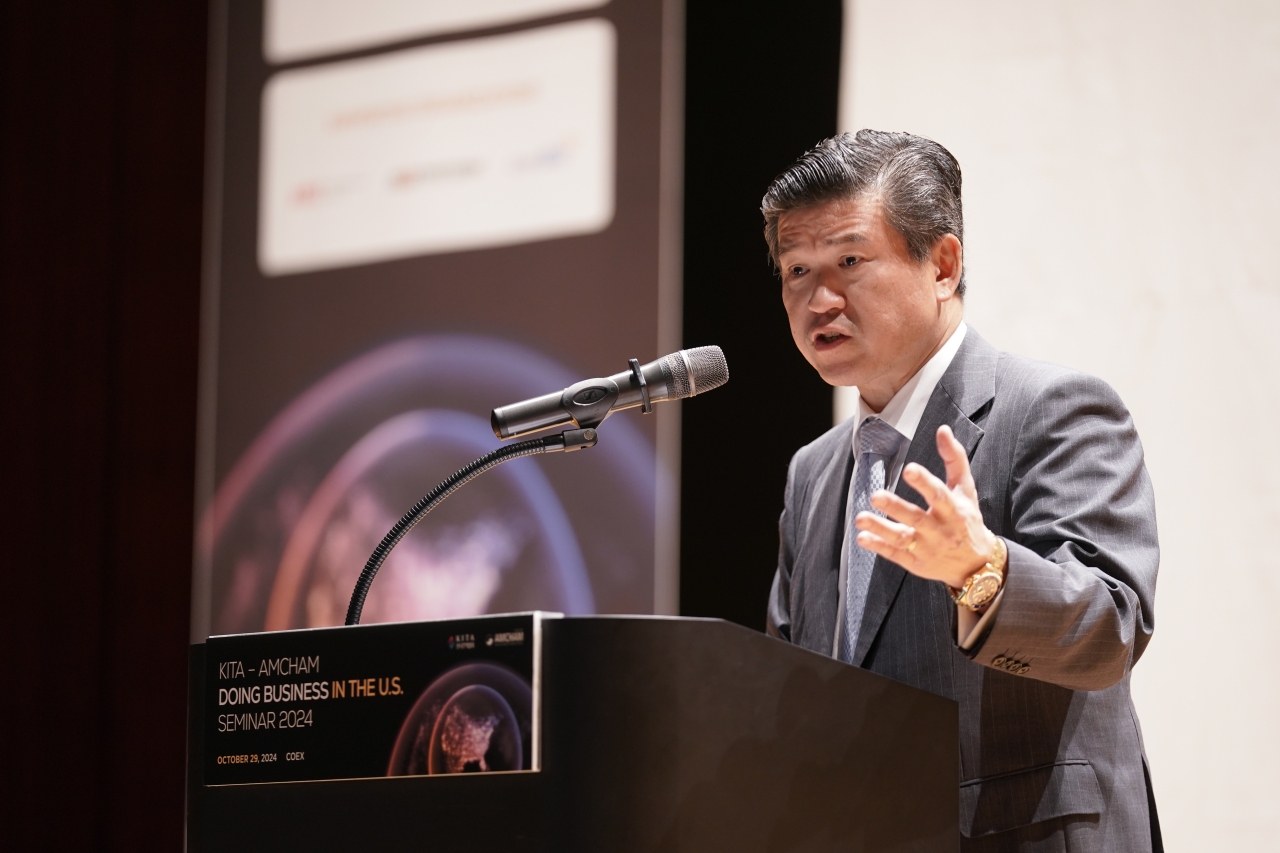Industrials
AmCham, KITA host seminar on doing business in US
 |
AmCham Chairman & CEO James Kim delivers opening remarks at the sixth annual business seminar held in Seoul on Tuesday. (AmCham) |
The American Chamber of Commerce in Korea hosted a seminar on Tuesday in Seoul, partnering with the Korea International Trade Association to explore key business opportunities and challenges associated with expanding into the US market.
Now in its sixth year, the annual seminar focused on providing essential insights and practical strategies for Korean companies aiming to establish or expand their presence in the US, with particular emphasis on US market trends and key implications of the 2024 US presidential election.
“During our recent visit to Washington, D.C., we witnessed the trust that defines the US-Korea relationship. There’s growing interest from Korean companies in investing in the US market, and the US views these Korean companies as valued ‘customers,’” said AmCham Chairman and CEO James Kim in his opening remarks.
“I truly believe that these ‘customers’ will always be treated well. Our strong partnership between the US and Korea will remain rock solid, built on trust and collaboration,” he added.
Kim Gi-hyun, vice president of KITA’s international cooperation group, echoed this sentiment, noting that the trade volume between Korea and the US surpassed $100 billion in the first half of this year for the first time.
“With this positive momentum, it’s essential for our businesses to be prepared, as the US business landscape -- including trade policies, high-tech restrictions and tax incentives -- is likely to undergo significant changes following the US presidential election,” he said.
In his keynote speech, Yoon In-goo, head of the global economy department at the Korea Center for International Finance, provided an analysis of the US economic outlook.
“There’s a possibility that the US base interest rate could be reduced by 25 basis points in both November and December, with a further 100 basis point decrease anticipated next year -- a trend that would likely benefit corporate activity in the US,” he said. However, he cautioned that ongoing risks -- including a potential economic downturn, persistent core inflation and worsening federal finances -- require close monitoring of postelection policy impacts on both the US and global economies.
The seminar continued with a panel discussion on how the upcoming US presidential election might impact business operations. Additionally, industry experts shared practical insights on entering the US market, covering topics such as visas, supply chain resilience, site selection and construction.
By Hwang Joo-young (flylikekite@heraldcorp.com)








